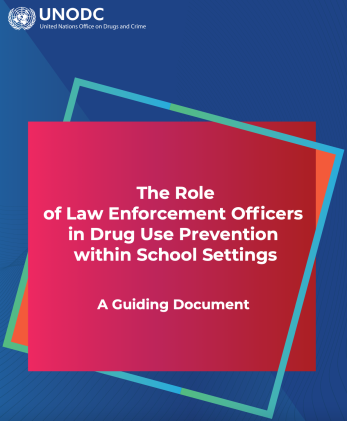
Іздестіру
The crime, mental health, and economic impacts of prearrest diversion of people with mental health problems: A systematic review.
Abstract
Background
Prearrest diversion strategies are being adopted across the Western world, enabling the police to identify and divert people suspected of having mental disorder towards health and community services rather than the...
Seattle’s law enforcement assisted diversion (LEAD): Program effects on criminal justice and legal system utilization and costs.
Abstract
Objectives We evaluated a prebooking law enforcement assisted diversion (LEAD) program (i.e., initial diversion from the criminal justice system paired with harm-reduction case management and legal assistance to individuals with...
LEAD program evaluation: Recidivism report.
Abstract
This document reports on a quantitative analysis project to compare outcomes for the Law Enforcement Assisted Diversion (LEAD) Program, which was established in 2011 as a means of diverting those suspected of low-level drug and...
A systematic review and meta-analysis on the effectiveness of CBT informed anger management
Highlights
-
CBT based anger management achieved a risk reduction of 23% for general recidivism.
-
CBT based anger management achieved a risk reduction of 28% for violent recidivism.
-
Treatment completion may result in a 42% risk...
Psychological Predictors of Recidivism for Intimate Partner Violence Perpetrators: A Systematic Scoping Review
Abstract
Theoretical accounts of recidivistic intimate partner violence (IPV) continue to differ considerably in relation to the relative weight given to psychological risk factors. A systematic overview of studies that have established...
Anger and substance abuse: a systematic review and meta-analysis.
ABSTRACT
Objective: Conduct a systematic review and meta-analysis to evaluate levels of anger among substance users compared to non-user controls and to analyze the possible association between anger and psychoactive substance use (PSU).
...Psychological therapies for post‐traumatic stress disorder and comorbid substance use disorder
ABSTRACT
Background
Post‐traumatic stress disorder (PTSD) is a debilitating mental health disorder that may develop after exposure to traumatic events. Substance use disorder (SUD) is a behavioural disorder in which the use of one or more...
Effectiveness of Seeking Safety for Co-Occurring Posttraumatic Stress Disorder and Substance Use
Abstract
The authors evaluated the Seeking Safety program's effectiveness for treating posttraumatic stress disorder (PTSD) and substance use symptoms across 12 between-groups studies (N = 1,997 participants). Separate meta-analytic...
Seeking safety intervention for comorbid post-traumatic stress and substance use disorder: A meta-analysis
Abstract
Problem statement: Seeking Safety (SS) is a widely implemented cognitive-behavioral therapy for comorbid post-traumatic stress disorder (PTSD) and substance use disorder (SUD). It is a present-focused coping skills model that is...
Seeking Safety for women in incarceration: a systematic review
ABSTRACT
Purpose
Seeking Safety is an evidence-based treatment for individuals with comorbid posttraumatic stress disorder and substance use disorder. This treatment shows promise to address the unique, unmet needs of women in prison. The...
Law enforcement-led, pre-arrest diversion-to-treatment may reduce crime recidivism, incarceration, and overdose deaths: Program evaluation outcomes.
Abstract
Introduction: Substance use disorder (SUD), overdose, and drug use-related crime continue to increase in the U.S. Pre-arrest diversion-to-treatment programs may decrease crime recidivism and overdose deaths. We assessed the impact...
Evaluating Seeking Safety for Women in Prison: A Randomized Controlled Trial
Abstract
Objective:
This study assessed the effectiveness of Seeking Safety on depression and post-traumatic stress disorder (PTSD) with incarcerated women.
Method:
A randomized controlled trial (N = 40) was used to analyze Seeking...
Pre-Arrest Diversion-To-Treatment for Adults with Substance Use Disorder: Health Outcomes and Predictors of Program Completion.
Abstract
Untreated addiction is often associated with criminal justice involvement. Pre-arrest diversion programs are increasingly popular, despite limited evidence. We implemented Madison Addiction Recovery Initiative (MARI), a law...
Recidivism Treatment Manuals: A Corpus-based Examination for Public Offender Counselors
Abstract
Incarceration rates in the U.S. reflect racial disparities, with individuals of color incarcerated over five times the rate of non-Hispanic White males. From a behavioral health perspective, incarceration and recidivism rates are...
How effective is the “Reasoning and Rehabilitation” (R&R) program in changing cognitive and behavioral skills? A systematic review and meta-analysis
Abstract
Interventions for individuals who commit offenses are of great importance to reduce criminal recidivism by targeting criminogenic factors. The first and most widely applied program is the Reasoning & Rehabilitation (R&R) program...
Police diversion at arrest: A systematic review of the literature.
Abstract
Police-initiated diversion programs are an increasingly common intervention to prevent excessive arrests of vulnerable populations. This systematic literature review carefully examined the current state of research to evaluate...
A multi-site evaluation of law enforcement deflection in the United States.
Many law enforcement and other first responder agencies have adopted deflection as a front-line response to the increasing number of drug overdoses and deaths in the United States over the past two decades. Deflection programs aim to...
Peer Recovery Support Services in New York Opioid Intervention Courts: Essential Elements and Processes for Effective Integration.
Abstract:
Opioid intervention courts (OICs) have shown early promise in addressing the needs of offenders with opioid use disorders. Using their experience, the authors present a framework for conceptualizing the adaptation and integration...
Peer recovery support for individuals with substance use disorders: Assessing the evidence.
Abstract
Objective
Peer recovery support services are delivered by individuals in recovery from substance use disorders to peers with substance use disorders or co-occurring mental disorders. This review describes the service and assesses...
Peer support on the “inside and outside”: building lives and reducing recidivism for people with mental illness returning from jail.
Abstract
Purpose: The purpose of this paper is to gain understanding about the effectiveness of a forensic peer support program’s impact on reducing criminal recidivism. People with histories of mental illness returning to the community...
Share the Knowledge: ISSUP members can post in the Knowledge Share – Sign in or become a member

